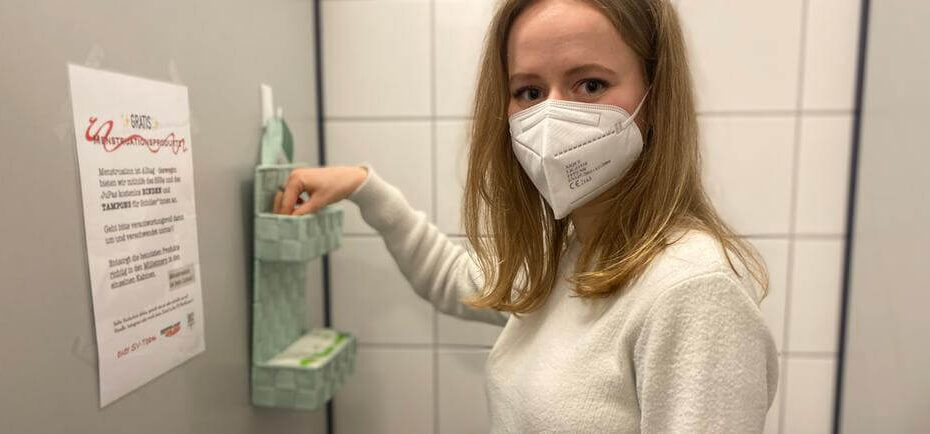Pupils at a grammar school in Wiesbaden, Hesse have had enough. They have taken the initiative to ensure that sanitary pads and tampons are available in the girls’ toilets and washrooms at the school. In this way, they want to combat the stigma of menstrual bleeding, which still affects many girls in Germany. They also make free sanitary healthcare possible for those female classmates who cannot afford the hygiene articles.
In Darmstadt, too, something is happening. Several parliamentary groups have submitted a motion in cooperation to offer period products free of charge in all public buildings in the city. This motion was approved by a large majority and is to be implemented soon.
Although the VAT on menstrual products in Germany was reduced from 19 to seven per cent in 2020, many manufacturers have increased the prices of their products as a result. Thus they are not affordable for everyone.
Period poverty shall not decide upon school attendance
The Scottish Parliament’s decision at the end of November 2020 to provide access to sanitary products not only in schools and universities, but also in all public buildings in the country, probably served as a model. The aim is to make these items available free of charge at all times to those who need them: menstruating girls and women. Statistically, one in ten suffers from so-called period poverty and cannot afford these items and as a result cannot participate in professional or educational activities and social life.
New Zealand has also taken the step of offering menstrual products free of charge in schools since June 2021. Here, too, the reason is clearly rooted in the fight against poverty. Many menstruating girls stay away from class because they simply cannot afford period products.
In the EU, the minimum VAT rate of five percent still applies at present. But that could soon change. From 2022, this five-percent brake is to be abolished, which would enable all EU member states to offer hygiene products for women tax-free.
This has already been the case in Kenya since 2011, Malta and Ireland have followed suit. Perhaps the German parliament will also see sense and end the financial discrimination against menstruating women. Free sanitary healthcare should be available to those who need it.
Sources and further links:
hessenschau.de/gesellschaft/keine-luxusprodukte-tampons-for-free-an-wiesbadener-schule,menstruationsartikel-kostenlos-100.html
nwzonline.de/panorama/menstruationsprodukte-in-schottland-bald-kostenlos_a_50,10,4249287346.html
welt.de/politik/ausland/article220992580/Menstruationsartikeln-Schottland-stimmt-fuer-kostenlose-Bereitstellung.html
taz.de/Neues-Gesetz-in-Schottland/!5731435/
stern.de/neon/wilde-welt/politik/keinluxus/periodenprodukte-werden-ermaessigt-besteuert—bundestag-hat-entschieden-8990808.html
stern.de/politik/neuseeland–schulen-stellen-ab-juni-kostenlose-tampons-und-binden-bereit-30385080.html
dw.com/de/tampon-steuer-hygieneprodukte-deutschland/a-51142312
Photo credit: © Lara Trizzino
